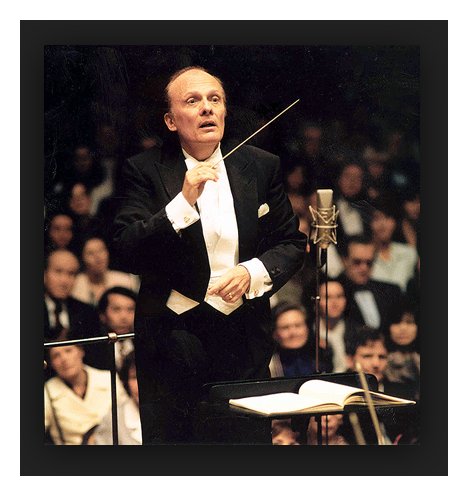

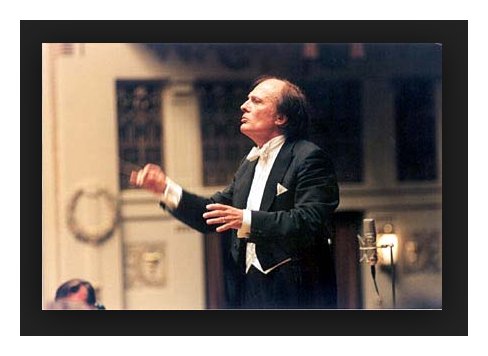 Born in Brno, Czechoslovakia, Zdenek Macal
is now an American citizen. At the age of four he began violin studies
with his father. He went on to study conducting at the Brno
Conservatory and then at the Janácek Academy of Music, where he
graduated with highest honors in 1960. Zdenek Macal's previous
positions include Music Directorships of the Czech Philharmonic
(2003-2007), the New Jersey Symphony (1993-2002), the Milwaukee
Symphony Orchestra (1986-1993), the Cologne Radio Symphony and the
Radio Orchestra of Hannover. He has also served as Chief Conductor of
the Sydney Symphony Orchestra, Principal Conductor of Chicago's Grant
Park Summer Festival and Principal Conductor of the Prague Symphony
Orchestra, where he conducted both symphonic concerts and operatic
performances. He first received international attention by winning two
prestigious contests, the 1965 International Conducting Competition in
Besançon, France, and the 1966 Dmitri Mitropoulos Competition in
New York, chaired by Leonard Bernstein. In May, 1998, the Westminster
Choir College honored Maestro Macal with an honorary doctorate. Born in Brno, Czechoslovakia, Zdenek Macal
is now an American citizen. At the age of four he began violin studies
with his father. He went on to study conducting at the Brno
Conservatory and then at the Janácek Academy of Music, where he
graduated with highest honors in 1960. Zdenek Macal's previous
positions include Music Directorships of the Czech Philharmonic
(2003-2007), the New Jersey Symphony (1993-2002), the Milwaukee
Symphony Orchestra (1986-1993), the Cologne Radio Symphony and the
Radio Orchestra of Hannover. He has also served as Chief Conductor of
the Sydney Symphony Orchestra, Principal Conductor of Chicago's Grant
Park Summer Festival and Principal Conductor of the Prague Symphony
Orchestra, where he conducted both symphonic concerts and operatic
performances. He first received international attention by winning two
prestigious contests, the 1965 International Conducting Competition in
Besançon, France, and the 1966 Dmitri Mitropoulos Competition in
New York, chaired by Leonard Bernstein. In May, 1998, the Westminster
Choir College honored Maestro Macal with an honorary doctorate. A respected musical force, conductor Zdenek Macal is renowned in the world of classical music for his masterful interpretations and graceful conducting style. He has guest conducted over 160 orchestras worldwide, including the Berlin Philharmonic, the Royal Philharmonic, the London Symphony Orchestra, the London Philharmonic, the Orchestre de Paris, the Orchestre National de France, the Orchestre de la Suisse Romande, the Czech Philharmonic, the Vienna Symphony, the Orchestra della Scala, the Stockholm Philharmonic, the Hamburg Philharmonic, the Munich Philharmonic and the NHK Symphony Orchestra in Tokyo. Mr. Macal has also conducted at the Prague National Theater, the Smetana Theater, the Brno Opera, and the opera houses of Cologne, Geneva, Turin and Bologna. He has taken part in major international festivals including those of Vienna, Lucerne, Edinburgh, Prague, Zurich, Besançon, Athens, Montreux and Holland; as well as the Casals Festival in Puerto Rico and the Ravinia, Tanglewood and Wolf Trap festivals in the United States. Since his American debut with the Chicago Symphony Orchestra in 1972, he has conducted widely throughout North America, regularly leading the New York Philharmonic, the Philadelphia Orchestra, the National Symphony, the St. Louis Symphony, the Pittsburgh Symphony, the Minnesota Orchestra, the Houston Symphony, the New World Symphony and the symphony orchestras of Montreal and Toronto. |
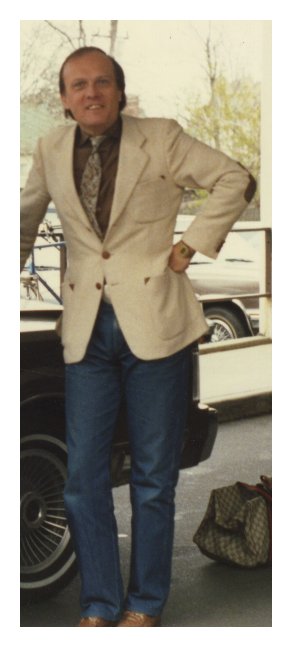 ZM: Yes. In
the beginning I didn’t care so much, but we are doing it now 35
years. My wife and I spend most of the time in the hotels,
especially in the past. Now it’s a little bit better because we
have the house in Milwaukee. I spend about fifteen weeks with
Milwaukee Symphony, so we are now in our house where we have a little
space. We have the main residence in California, so it’s not
exactly ten months in the hotel. It was a few years ago, but
still it is a lot in the hotels. This summer, for example, I go
from the hotel to hotel. I opened the season here, then I went to
Detroit for the Meadow Brook Festival. Then I was in the Wolf
Trap Festival with Washington National Orchestra, and last week I was
with Philadelphia in the Mann Music Center. Then I came back
here. So you have a period of weeks and weeks in the hotels.
ZM: Yes. In
the beginning I didn’t care so much, but we are doing it now 35
years. My wife and I spend most of the time in the hotels,
especially in the past. Now it’s a little bit better because we
have the house in Milwaukee. I spend about fifteen weeks with
Milwaukee Symphony, so we are now in our house where we have a little
space. We have the main residence in California, so it’s not
exactly ten months in the hotel. It was a few years ago, but
still it is a lot in the hotels. This summer, for example, I go
from the hotel to hotel. I opened the season here, then I went to
Detroit for the Meadow Brook Festival. Then I was in the Wolf
Trap Festival with Washington National Orchestra, and last week I was
with Philadelphia in the Mann Music Center. Then I came back
here. So you have a period of weeks and weeks in the hotels.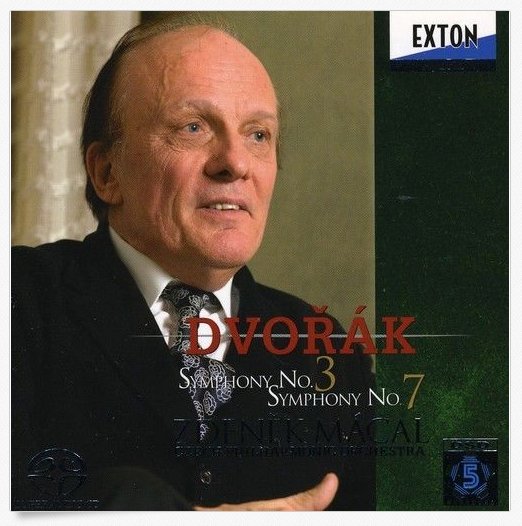 ZM: You cannot
separate these two things. If you should go up artistically you
need the money, and today you cannot just leave it on
administration. You cannot leave it on the executive director
where people on the staff just say, “Go and raise the money.”
They tried; everybody tried very hard, but I know from my experience
that the musical director can do a lot. This is my experience
with Milwaukee and everywhere for the financial situation because you
are, as conductor or as Musical Director, you are more present.
You are more visible, so the people respond to you more
generously. If you go to a party as executive director of the
orchestra, or if you talk to the people, they try to help you.
But if they go to my concerts for a while and they see me on stage, you
are more present. If I use the same words I can get a faster
result and better result. So I do it! It’s very easy to say
the management should do it, but today it a tough job.
ZM: You cannot
separate these two things. If you should go up artistically you
need the money, and today you cannot just leave it on
administration. You cannot leave it on the executive director
where people on the staff just say, “Go and raise the money.”
They tried; everybody tried very hard, but I know from my experience
that the musical director can do a lot. This is my experience
with Milwaukee and everywhere for the financial situation because you
are, as conductor or as Musical Director, you are more present.
You are more visible, so the people respond to you more
generously. If you go to a party as executive director of the
orchestra, or if you talk to the people, they try to help you.
But if they go to my concerts for a while and they see me on stage, you
are more present. If I use the same words I can get a faster
result and better result. So I do it! It’s very easy to say
the management should do it, but today it a tough job.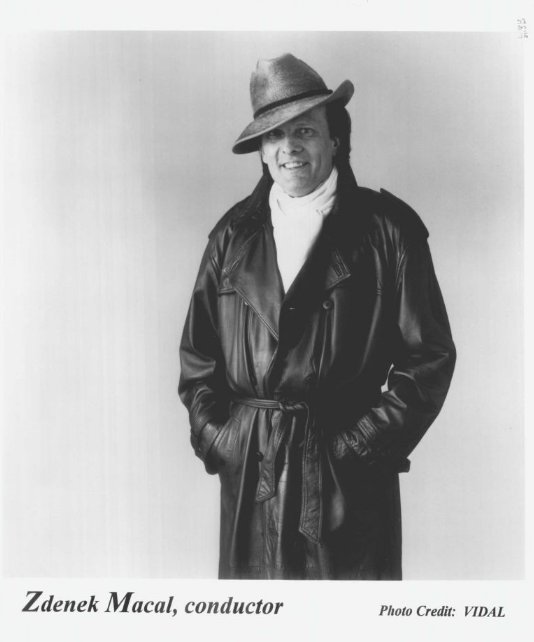 ZM: It’s
different. There are many things that are different from being
inside. First there is the whole acoustic problem outside of
amplification, larger audience, and the space around the
audiences. When I came here in the beginning, I was very
disturbed with the noise all around. Sometimes it disturbed my
concentration so that I was thinking I cannot go ahead. We are on
the corner, so there is the street noise, and there are noises from the
lake. Several times the noise is coming from the air, the
airplanes. This happened just last night a few times, and mostly
they are coming in the softest places. But I learned one thing
over the years — that simply I am not any more
disturbed by these noises. Sometimes I don’t even hear
them. I concentrate only on the sound which is in the
shell. So I can now eliminate the sounds outside, and even if it
is a helicopter is coming, like last night at a very soft moment.
I knew that it was there, but I just felt the noise. There was
some noise there, but my concentration was really on the music in the
shell. So that’s the process for me personally, because as I
said, in the beginning I was quite disturbed. It disturbed your
concentration because on the whole it was mostly absolutely
quiet. So you concentrate only on the sound, and music is
sound. I have done 35 years just listening and absorbing all of
these sounds, so in the beginning when these non-musical sounds came,
they were sounds which I heard and compared. Especially when it
is very humid or hot, the sirens and emergency ambulances are running,
and they don’t care that there is a concert going on. So it’s a
different thing. But one positive thing is that you get much
larger crowds at outdoor concerts. I was just last week in
Philadelphia, and a week before I was in Washington, and a week before
that in Detroit. Everything was outside concerts with huge
audiences, between five and ten thousand people, and they hear every
evening. So many people at the concert! You cannot get this
large audience in the hall, so that’s very positive, that many people
hear the music, that many people participate in the culture
events. On the other hand, outside noises are not
everywhere. For example, Wolf Trap in Washington is in the woods,
so it’s separated completely, and the Mann Music Center is close to the
city, but it’s in the park. Several of these institutions have
the privilege that they are in some isolated spots. Even if they
are in open areas it is a little more isolated. On the other
hand, the summer concerts, basically,sever are not so serious and so
heavy as the winter season that you really listen and concentrate for
it. Very often the summer concerts are combined with picnics and
the family together and friends together, and everything is more
relaxed. So if there is some noise and some train is going and
some siren, okay. So what? We have nice evening, we have
nice weather, we have stars overhead in the sky. It’s a different
atmosphere, but the thing is that you have some kind of cultural
experience. One day, some people who go to summer concerts will
miss this experience during the winter and say, “Gosh, I didn’t hear
for a long time Beethoven or Brahms! Let’s go downtown to the
symphony to a classical concert,” and that’s positive.
ZM: It’s
different. There are many things that are different from being
inside. First there is the whole acoustic problem outside of
amplification, larger audience, and the space around the
audiences. When I came here in the beginning, I was very
disturbed with the noise all around. Sometimes it disturbed my
concentration so that I was thinking I cannot go ahead. We are on
the corner, so there is the street noise, and there are noises from the
lake. Several times the noise is coming from the air, the
airplanes. This happened just last night a few times, and mostly
they are coming in the softest places. But I learned one thing
over the years — that simply I am not any more
disturbed by these noises. Sometimes I don’t even hear
them. I concentrate only on the sound which is in the
shell. So I can now eliminate the sounds outside, and even if it
is a helicopter is coming, like last night at a very soft moment.
I knew that it was there, but I just felt the noise. There was
some noise there, but my concentration was really on the music in the
shell. So that’s the process for me personally, because as I
said, in the beginning I was quite disturbed. It disturbed your
concentration because on the whole it was mostly absolutely
quiet. So you concentrate only on the sound, and music is
sound. I have done 35 years just listening and absorbing all of
these sounds, so in the beginning when these non-musical sounds came,
they were sounds which I heard and compared. Especially when it
is very humid or hot, the sirens and emergency ambulances are running,
and they don’t care that there is a concert going on. So it’s a
different thing. But one positive thing is that you get much
larger crowds at outdoor concerts. I was just last week in
Philadelphia, and a week before I was in Washington, and a week before
that in Detroit. Everything was outside concerts with huge
audiences, between five and ten thousand people, and they hear every
evening. So many people at the concert! You cannot get this
large audience in the hall, so that’s very positive, that many people
hear the music, that many people participate in the culture
events. On the other hand, outside noises are not
everywhere. For example, Wolf Trap in Washington is in the woods,
so it’s separated completely, and the Mann Music Center is close to the
city, but it’s in the park. Several of these institutions have
the privilege that they are in some isolated spots. Even if they
are in open areas it is a little more isolated. On the other
hand, the summer concerts, basically,sever are not so serious and so
heavy as the winter season that you really listen and concentrate for
it. Very often the summer concerts are combined with picnics and
the family together and friends together, and everything is more
relaxed. So if there is some noise and some train is going and
some siren, okay. So what? We have nice evening, we have
nice weather, we have stars overhead in the sky. It’s a different
atmosphere, but the thing is that you have some kind of cultural
experience. One day, some people who go to summer concerts will
miss this experience during the winter and say, “Gosh, I didn’t hear
for a long time Beethoven or Brahms! Let’s go downtown to the
symphony to a classical concert,” and that’s positive.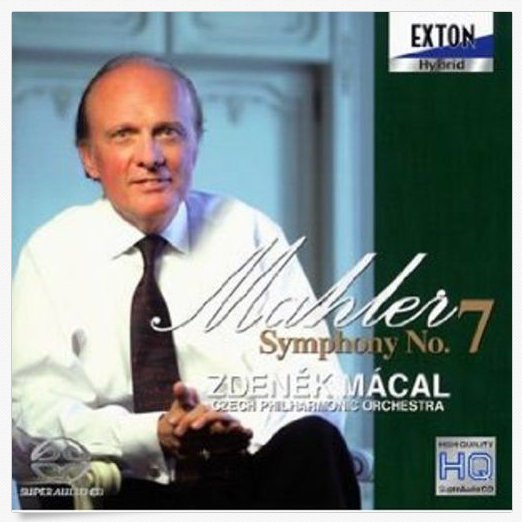 ZM: That’s a
complicated process. One criterion is that we should have the
season quite variable; it should be different composers there. So
first you start and decide what should be on the program.
Basically it should be some Beethoven, some Brahms, from these big
classics, and then it should be some composers that are less frequently
played, like Bohuslav Martinů or Vieuxtemps. Then there are the
contemporary composers, American or worldwide. So you have now
the range of the works which you should put on the whole season, but
you must build every single program for itself. The process is
quite complicated, and it takes me quite a long time. I am
thinking about the programs several seasons ahead, and then I change my
mind and you modulate it. It takes a long time because there are
many components. It’s not easy to say it in five minutes.
Then you have the soloists, and they play some specific repertory
because not everybody plays the same and not everybody plays
everything. You also have some guest conductors and they have
their repertoire. So if we need this and this concerto, the
soloist maybe has not it in their repertoire. So you must ask
what he or she has.
ZM: That’s a
complicated process. One criterion is that we should have the
season quite variable; it should be different composers there. So
first you start and decide what should be on the program.
Basically it should be some Beethoven, some Brahms, from these big
classics, and then it should be some composers that are less frequently
played, like Bohuslav Martinů or Vieuxtemps. Then there are the
contemporary composers, American or worldwide. So you have now
the range of the works which you should put on the whole season, but
you must build every single program for itself. The process is
quite complicated, and it takes me quite a long time. I am
thinking about the programs several seasons ahead, and then I change my
mind and you modulate it. It takes a long time because there are
many components. It’s not easy to say it in five minutes.
Then you have the soloists, and they play some specific repertory
because not everybody plays the same and not everybody plays
everything. You also have some guest conductors and they have
their repertoire. So if we need this and this concerto, the
soloist maybe has not it in their repertoire. So you must ask
what he or she has.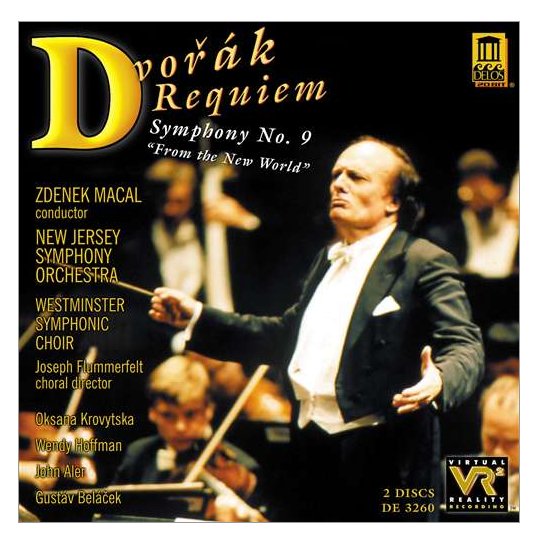 ZM: No, not at
all. No, no, no. The recording for me is the end product,
and is the result of my experience with the work and with the composer
in the past. For example, the New
World Symphony of Dvořák I conducted over 100
times. Last year in Vienna it was my 100th performance, and some
other symphonies go over 50 performances. During these many
performances you change a little, a few details, and you are waiting
for the result to hear how it works. Sometimes you feel that’s
good, it works. Or this tempo is too slow; it should be a little
faster. It should be a little slower here. It should be
more dynamic here; more accent here. It is not exactly
experiment, but it’s just working on the details. Over the years,
when I am working with these works, we can say the better I know
them. Some Beethoven symphonies I have done seventy or eighty
performances. You just try to see the music from a little
slightly different corner, and you’ve got to see if it works or
not. Then you go back or you develop again. So over these
many performances, it’s never final, but you develop your final
version. It means even if I change a few details in every
performance, the main, the ground line, the ground performance is
there, is fixed. Then I can go to the studio and record it.
I don’t like to do things just for the recording, to just learn some
piece and I record it. If you make the recordings, they stay for
the case sometimes for twenty or twenty-five years. It’s your
calling card, your presentation, so if I don’t know the work well, it
is better I don’t do it. With Milwaukee, we started the
recordings and everybody was surprised not only with the high level of
the orchestra playing, but also of the performance, of the
interpretation. Of course I started with Dvořák, which is
very familiar to me, which is also now very familiar to the Milwaukee
Symphony Orchestra. I am now four years as Music Director and one
year principal guest, so the orchestra knows which way they should play
with me. We came to a point that I was satisfied with the results
and we could put it on the CD. We get very positive response from
everywhere, not only with the Dvořák recordings, but also the
Beethoven symphonies. I am very happy about this because when I
came to Milwaukee I started to go systematically through them. We
played every year two or three symphonies, and that’s important from
the education point of view. We play every year for a few years
in the summer the Beethoven symphonies in the Marcus Amphitheater,
which is about 9,000 covered seats. It’s a beautiful
facility. So we are working systematically, the same orchestra,
the same conductor and same direction on one composer, so when we
recorded Beethoven symphonies, I knew that it’s a big task. Every
big orchestra, every greatest orchestra in the world recorded the
Beethoven symphonies. But we took the risk and we recorded them,
and we got very positive response from the critics around the whole
United States. Some people are thinking, “What is the Milwaukee
Symphony?” They didn’t know much about the quality; it wasn’t
very exposed.
ZM: No, not at
all. No, no, no. The recording for me is the end product,
and is the result of my experience with the work and with the composer
in the past. For example, the New
World Symphony of Dvořák I conducted over 100
times. Last year in Vienna it was my 100th performance, and some
other symphonies go over 50 performances. During these many
performances you change a little, a few details, and you are waiting
for the result to hear how it works. Sometimes you feel that’s
good, it works. Or this tempo is too slow; it should be a little
faster. It should be a little slower here. It should be
more dynamic here; more accent here. It is not exactly
experiment, but it’s just working on the details. Over the years,
when I am working with these works, we can say the better I know
them. Some Beethoven symphonies I have done seventy or eighty
performances. You just try to see the music from a little
slightly different corner, and you’ve got to see if it works or
not. Then you go back or you develop again. So over these
many performances, it’s never final, but you develop your final
version. It means even if I change a few details in every
performance, the main, the ground line, the ground performance is
there, is fixed. Then I can go to the studio and record it.
I don’t like to do things just for the recording, to just learn some
piece and I record it. If you make the recordings, they stay for
the case sometimes for twenty or twenty-five years. It’s your
calling card, your presentation, so if I don’t know the work well, it
is better I don’t do it. With Milwaukee, we started the
recordings and everybody was surprised not only with the high level of
the orchestra playing, but also of the performance, of the
interpretation. Of course I started with Dvořák, which is
very familiar to me, which is also now very familiar to the Milwaukee
Symphony Orchestra. I am now four years as Music Director and one
year principal guest, so the orchestra knows which way they should play
with me. We came to a point that I was satisfied with the results
and we could put it on the CD. We get very positive response from
everywhere, not only with the Dvořák recordings, but also the
Beethoven symphonies. I am very happy about this because when I
came to Milwaukee I started to go systematically through them. We
played every year two or three symphonies, and that’s important from
the education point of view. We play every year for a few years
in the summer the Beethoven symphonies in the Marcus Amphitheater,
which is about 9,000 covered seats. It’s a beautiful
facility. So we are working systematically, the same orchestra,
the same conductor and same direction on one composer, so when we
recorded Beethoven symphonies, I knew that it’s a big task. Every
big orchestra, every greatest orchestra in the world recorded the
Beethoven symphonies. But we took the risk and we recorded them,
and we got very positive response from the critics around the whole
United States. Some people are thinking, “What is the Milwaukee
Symphony?” They didn’t know much about the quality; it wasn’t
very exposed.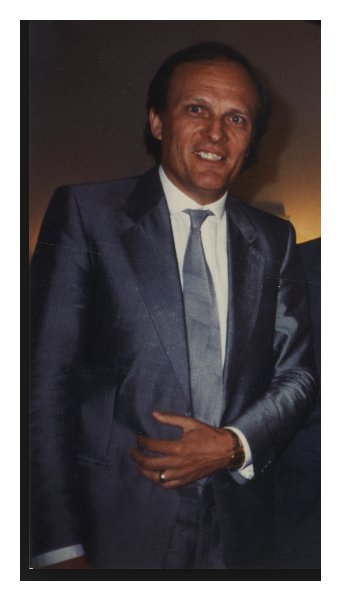 ZM: In the
contemporary music I can say William Schuman’s Third Symphony is such a joy!
[See my Interview
with William Schuman.] I don’t see a big difference between
conducting this work and the Beethoven Third Symphony, the Eroica. I believe in every
single piece which I conduct, because if I don’t believe in this music
I will not do it. First, I must believe that what I conduct is
good. So first I pick up the works which I believe are
good. Second, I do the works which I believe that I can animate
part of the music which maybe is not the strongest, but still has
substance, and I can discover the strongest side. Or I can show
the work from the best side. To be specific, Richard Strauss is a
great composer, one really from the greatest list. He has written
so many operas and so many big symphony works which are great, but they
are long. In something over 40 minutes, not all 40 minutes are
first-rate. There are moments that are a little odd. They
are part of the great composer, but they need some help. So it’s
a challenge for you. Just don’t do it in a boring way. Try
turning it; maybe have a different balance or a different color or a
different tempo. It’s your challenge; it’s your discovery how you
can work with it. If you are emotional, maybe you can turn the
dial on the other side and just show it from a different light.
It’s like with a picture. Maybe the angle is wrong, so try from
the other side. Maybe that looks better, so it is a good
composition, too. Maybe it seems just to me that this part is not
strong enough because I feel it the wrong way, or maybe I interpret it
a wrong way.
ZM: In the
contemporary music I can say William Schuman’s Third Symphony is such a joy!
[See my Interview
with William Schuman.] I don’t see a big difference between
conducting this work and the Beethoven Third Symphony, the Eroica. I believe in every
single piece which I conduct, because if I don’t believe in this music
I will not do it. First, I must believe that what I conduct is
good. So first I pick up the works which I believe are
good. Second, I do the works which I believe that I can animate
part of the music which maybe is not the strongest, but still has
substance, and I can discover the strongest side. Or I can show
the work from the best side. To be specific, Richard Strauss is a
great composer, one really from the greatest list. He has written
so many operas and so many big symphony works which are great, but they
are long. In something over 40 minutes, not all 40 minutes are
first-rate. There are moments that are a little odd. They
are part of the great composer, but they need some help. So it’s
a challenge for you. Just don’t do it in a boring way. Try
turning it; maybe have a different balance or a different color or a
different tempo. It’s your challenge; it’s your discovery how you
can work with it. If you are emotional, maybe you can turn the
dial on the other side and just show it from a different light.
It’s like with a picture. Maybe the angle is wrong, so try from
the other side. Maybe that looks better, so it is a good
composition, too. Maybe it seems just to me that this part is not
strong enough because I feel it the wrong way, or maybe I interpret it
a wrong way. 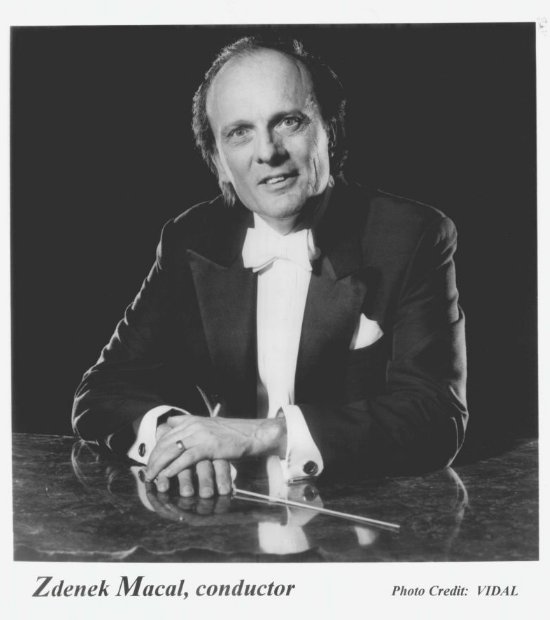 ZM: I don’t think
so. It will not be so different even if we have the tapes and all
the recording possibilities. What we have today is that more
people can listen relatively very easily and in a relatively cheap way
to much more music, and they can select. But they will make their
selection. You do selection, I do selection, because we like
something and we dislike something. In the end, if we will listen
to some tapes of this composer and another composer, and if somebody
will be here with us who will not know much about the music —
definitely less than we do — when we talk about this we will all be
very close. It doesn’t matter how many people; we will be very
close in some feelings. We will differ in a few things, but
generally you will say, “Okay, I like this piece but I don’t like that
piece,” and I will tell you maybe why, because that’s my job.
ZM: I don’t think
so. It will not be so different even if we have the tapes and all
the recording possibilities. What we have today is that more
people can listen relatively very easily and in a relatively cheap way
to much more music, and they can select. But they will make their
selection. You do selection, I do selection, because we like
something and we dislike something. In the end, if we will listen
to some tapes of this composer and another composer, and if somebody
will be here with us who will not know much about the music —
definitely less than we do — when we talk about this we will all be
very close. It doesn’t matter how many people; we will be very
close in some feelings. We will differ in a few things, but
generally you will say, “Okay, I like this piece but I don’t like that
piece,” and I will tell you maybe why, because that’s my job.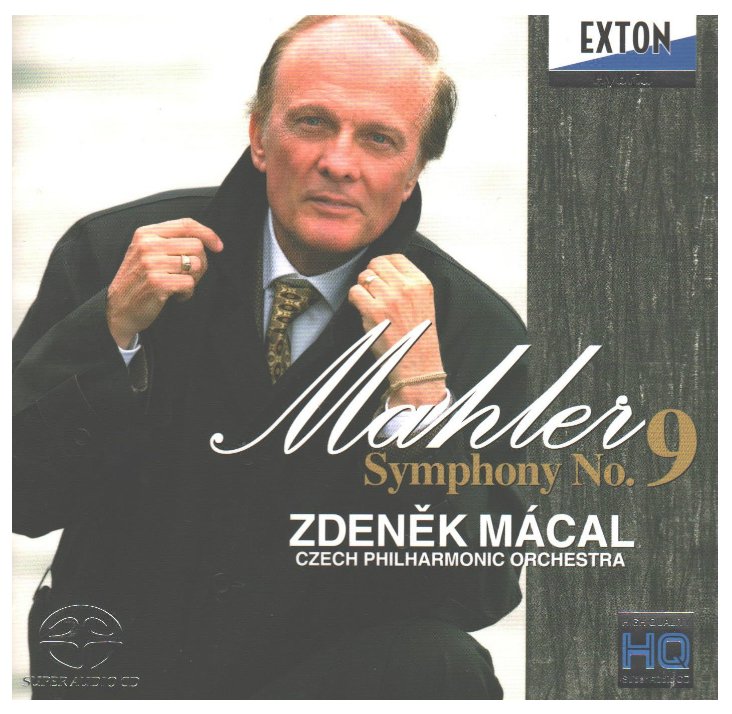
This interview was recorded at his hotel in Chicago on July 26,
1990. Segments were used
(with recordings)
on WNIB a month later, and again in 1994 and 1996. It was also
used on WNUR twice in 2012, and on Contemporary Classical Internet
Radio also in 2012. The
transcription was made and posted on this
website in 2013.
To see a full list (with links) of interviews which have been transcribed and posted on this website, click here.
Award - winning broadcaster Bruce Duffie was with WNIB, Classical 97 in Chicago from 1975 until its final moment as a classical station in February of 2001. His interviews have also appeared in various magazines and journals since 1980, and he now continues his broadcast series on WNUR-FM, as well as on Contemporary Classical Internet Radio.
You are invited to visit his website for more information about his work, including selected transcripts of other interviews, plus a full list of his guests. He would also like to call your attention to the photos and information about his grandfather, who was a pioneer in the automotive field more than a century ago. You may also send him E-Mail with comments, questions and suggestions.